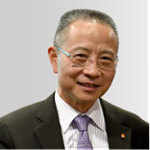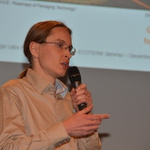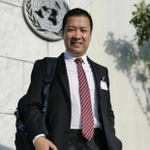Event Details
尊敬的女士们先生们:
我们的全球经济依赖深深交错的供应链,每年有超过1000亿吨来自世界各地的原材料进入供应链。各种突发事件如新冠病毒等使全球供应链更加复杂和脆弱。为了应对挑战,循环经济是提高供应链弹性的综合解决方案之一。回收,翻新,再利用,再制造对于降低供应风险至关重要。制造和供应中断推动了产品生态设计和流通性的循环创新。
循环经济也是气候变化的推动力。全球移动通信系统协会(GSMA)正在采取联合行动,以使该行业自身的气候排放完全透明,并已制定了一项全行业气候行动路线图,根据《巴黎协定》在2050年之前实现净零温室气体(GHG)排放。目前,超过50个移动运营商(占全球移动连接的三分之二以上)正在披露其气候影响,能源和温室气体排放。
联合行动和共同努力对于促进信息与通信技术(ICT)行业供应链中的循环经济与碳中和至关重要。为此,热烈欢迎您加入此论坛,分享见解和最佳实践。
Dear Sir / Madam,
Our global economy relies on deeply intertwined supply chains, sustained by more than 100 billion tons of raw materials entering the system each year. Unexpected outbreaks such as Covid-19 make global supply chain more complex and fragile. To tackle the challenges, one of the comprehensive solutions to improve supply chain resilience is the circular economy. Recycle, refurbish, reuse, and eco-design are essential to mitigate supply risk. Manufacturing and supply disruptions drive circular innovation for product eco-design and circularity.
Circular economy is also an enabler for climate change. GSMA is taking collaborative action to be fully transparent about the industry's own climate emissions and have developed an industry-wide climate action roadmap, to achieve net-zero greenhouse gas (GHG) emissions by 2050, in line with the Paris Agreement. More than 50 mobile operators – which together account for more than two thirds of mobile connections globally – are now disclosing their climate impacts, energy and GHG emissions.
Collective approach and joint efforts are crucial to promote circular economy and climate change in ICT supply chain. You are warmly welcomed to join this forum to share the insights and best practices.
Metro Room, 5th floor, Yiqiao Bridge+
Tengfei Dasha(Building), No.333, Tianyaoqiao Road
Shanghai, China
Show on map
Agenda
- 8:30 AM - 9:30 AMGuest registration
- 9:30 AM - 9:40 AMWelcome speechDr Alex WANG, VP of Orange Global Procurement & Supply Chain; CEO of Orange Sourcing Consulting

Alex WANG
VP of Global Procurement & Supply chain at Orange
- 9:40 AM - 9:50 AMHighlight of Europe circular economy and climate change roadmap - CSR EuropeMr Jan NOTERDAEME, Co-founder & Senior Advisor at CSR Europe
- 9:50 AM - 10:20 AMResponsible Sourcing - British Telecom sustainability strategy and requirement

Kelly NING
Supplier Capability Manager and Business Improvement Consultant at British Telecom
- 10:20 AM - 10:45 AMAssessing the different aspects of Circular Economy - OrangeMr Samuli VAIJA, Lead circular economy for network equipment at Orange

Mikko Samuli VAIJA
lead life cycle and circular economy analyst at Orange
- 10:45 AM - 11:05 AMBreak
- 11:05 AM - 11:30 AMEngaging Climate Change - Electronic Industry in Action

Denis LIU
社会责任工作委员会首席国际事务官以及CSR智库专家 at CESA
- 11:30 AM - 12:00 PMStepping into Net Zero: Science-based Targets Initiative and Practice - CDP

Yimin ZHOU
Senior Project Officer at CDP
- 12:00 PM - 1:30 PMLunch
- 1:30 PM - 1:55 PMRenewable energy procurement: opportunities and challenges - Deloitte

Elaine WU
Climate and sustainability manager at Deloitte
- 1:55 PM - 2:20 PMGeneral principles and examples of LCA - TUV Rheinland

Ray NIU
Technical manager at TÜV Rheinland
- 2:20 PM - 2:45 PMEnhancing Digital Inclusion by Circular Economy - Huawei

张智勇
运营商业务首席战略官 at 华为
- 2:45 PM - 3:00 PMBreak
- 3:00 PM - 3:25 PMNokia Circular Economy

Sunny CUI
Business lead China Market Development of Nokia Circular Supply at Nokia
- 3:25 PM - 3:50 PMZero Waste to Landfill - Anew Global Consulting

Joseph GUI
高级合伙人及总经理 at 安佑环境技术有限公司
- 3:50 PM - 4:00 PMConclusions
Speakers

Sunny CUI
Business lead China Market Development of Nokia Circular Supply at Nokia
Read Bio
Joseph GUI
高级合伙人及总经理 at 安佑环境技术有限公司
Read Bio
Denis LIU
社会责任工作委员会首席国际事务官以及CSR智库专家 at CESA
Read Bio
Kelly NING
Supplier Capability Manager and Business Improvement Consultant at British Telecom
Read Bio
Ray NIU
Technical manager at TÜV Rheinland
Read Bio
Mikko Samuli VAIJA
lead life cycle and circular economy analyst at Orange
Read Bio
Alex WANG
VP of Global Procurement & Supply chain at Orange
Read Bio
Elaine WU
Climate and sustainability manager at Deloitte
Read Bio
Yimin ZHOU
Senior Project Officer at CDP
Read Bio
张智勇
运营商业务首席战略官 at 华为
Read Bio
Tickets
- Circular Economy Forum
- Complimentary



